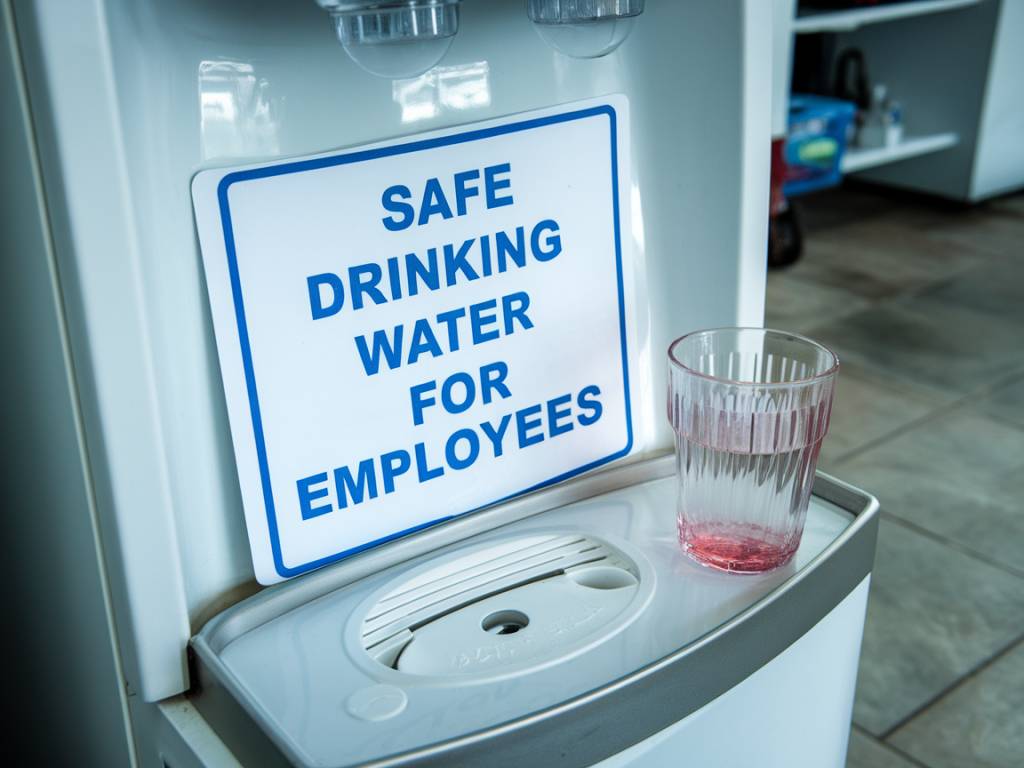Ensuring safe drinking water in the workplace is more than a mere obligation—it’s a vital commitment to employee health and satisfaction. As companies strive to offer optimum working conditions, providing clean, accessible drinking water is a fundamental aspect that can’t be overlooked. But how can companies effectively guarantee this essential resource for their staff? Let’s explore some innovative strategies and actionable solutions every business can consider.
Understanding the Importance of Safe Drinking Water
The necessity of safe drinking water in the workplace cannot be overstated. Not only is it pivotal for maintaining good health, but it also serves as a cornerstone for enhancing employee performance and productivity. Dehydration can lead to fatigue, decreased concentration, and even long-term health complications, all of which directly impact a company’s bottom line.
But beyond the physiological benefits, providing safe drinking water is also a testament to a company’s values. It signals a commitment to employee well-being and environmental responsibility, fostering a healthy workplace culture. After all, who doesn’t appreciate a refreshing sip of clean water during a busy workday?
Conducting a Water Quality Assessment
The journey towards ensuring safe drinking water begins with understanding the current state of your water supply. Conduct a thorough water quality assessment to identify any potential contaminants that might be lurking. This can often involve partnering with local water quality experts or using advanced in-house testing kits designed to detect impurities.
Regular testing allows companies to spot potential health risks early, ensuring that any changes in water quality are quickly addressed. It’s a proactive step that safeguards both the employees and the company’s reputation.
Implementing Water Purification Systems
Once you have a clear understanding of your water’s quality, consider investing in reliable water purification systems. These systems, such as carbon filters, reverse osmosis, or UV disinfection, offer robust solutions tailored to various needs and budgets.
By implementing such systems, businesses can significantly reduce the presence of harmful substances like lead, chlorine, and bacteria, ensuring that every employee has access to clean and safe drinking water. Choosing the right technology is crucial, so taking time to research and consult with water treatment professionals is a step worth taking.
Regular Maintenance and Monitoring
Installing a water purification system is only half the battle; ongoing maintenance and monitoring are equally critical. Regular maintenance ensures that the systems function optimally over time, while continuous monitoring allows for the quick detection and resolution of any issues that arise.
- Schedule routine inspections by qualified professionals.
- Train employees to identify and report potential issues with the water supply.
- Utilize sensors and smart technology to track water purity in real-time.
Encouraging a Culture of Cleanliness
While companies take responsibility for the technical aspects of water safety, fostering a culture of cleanliness among employees can further ensure a safe drinking environment. Encourage practices such as regularly cleaning personal water bottles or using clean glasses from communal eating areas.
Place informative posters near water sources and communal areas, emphasizing the importance of maintaining cleanliness to prevent contamination. An educated workforce is a safer workforce, especially when every individual’s diligence contributes to the overall well-being of the company.
Exploring Eco-Friendly Options
In tandem with ensuring water safety, companies can also embrace eco-friendly solutions that reduce environmental impact. Consider installing water dispensers that minimize plastic waste or introducing hydration stations that promote the use of reusable bottles.
These choices not only contribute to environmental sustainability but also enhance the company’s image as a responsible and forward-thinking enterprise.
Promoting Employee Involvement
Lastly, actively involve employees in the process and decision-making related to water safety and quality improvements. Host informational sessions or workshops to gather feedback and suggestions, fostering a two-way dialogue where employees feel valued and heard.
By engaging staff in these initiatives, companies can cultivate a sense of community and shared responsibility, making the workplace a more harmonious and health-conscious environment.
Guaranteeing safe drinking water for employees goes beyond compliance; it’s about nurturing a healthier, more productive, and collaborative workspace. Through sustained effort and strategic implementation of water safety measures, businesses can enrich both employee satisfaction and their own success. So, are you ready to make every sip count?

